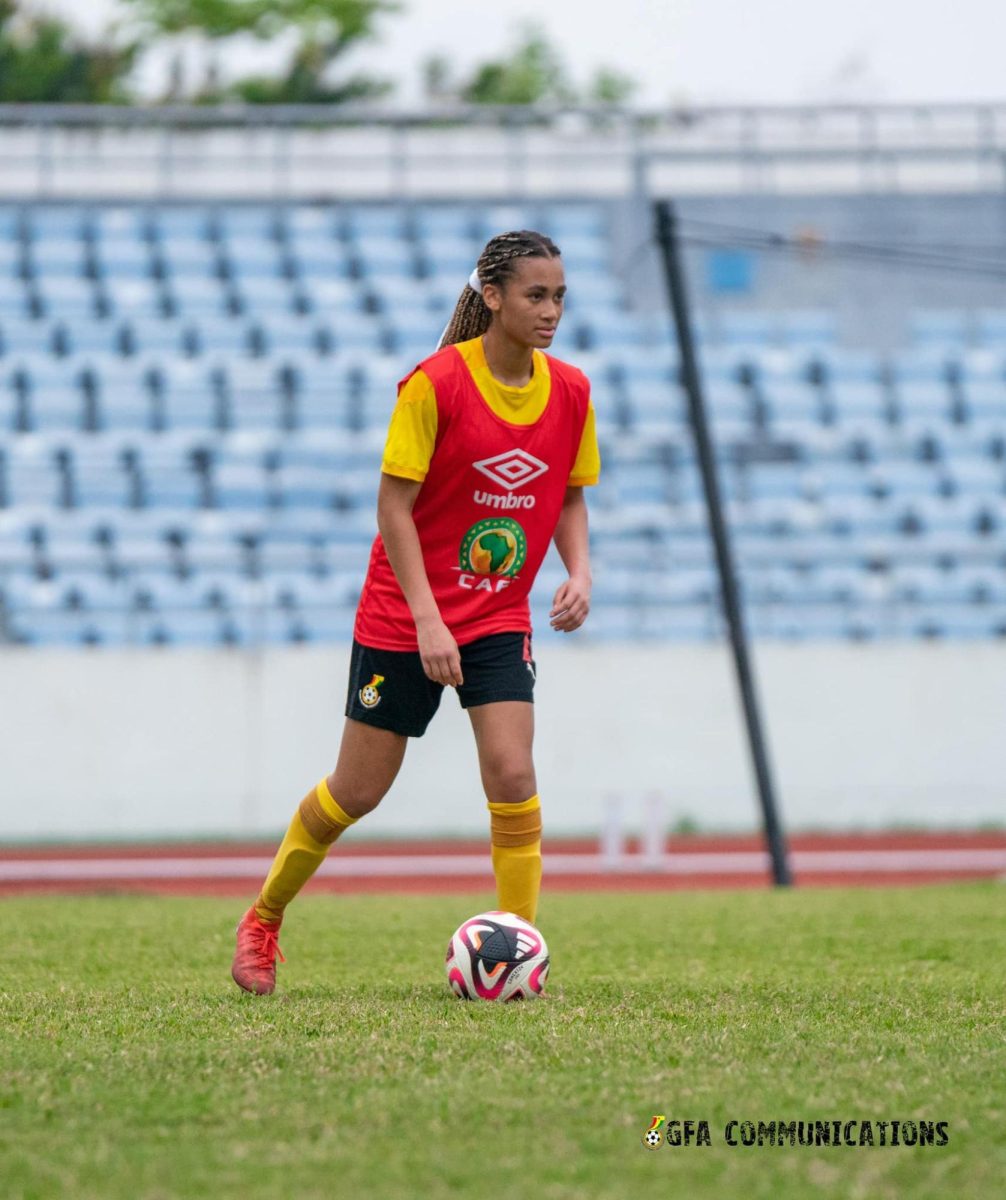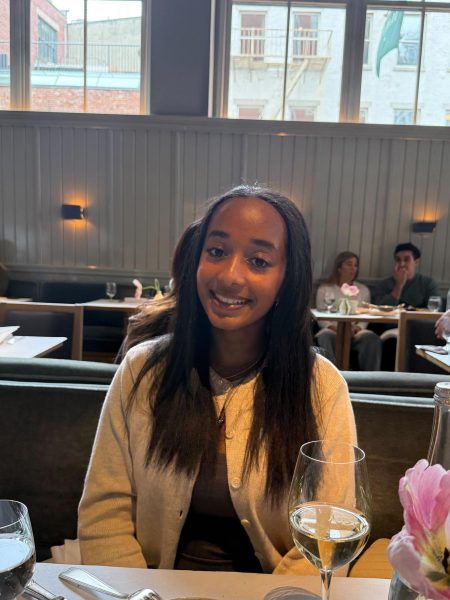For six weeks, Allie T. ’25 practiced soccer in the Ghanaian town of Elmina, staying in a hotel with a view of the Elmina Castle. Each day, Allie would observe the castle’s white stone walls, viewing the Portuguese architecture rising above the Atlantic Ocean. She’d look out at the castle nestled by the shoreline, surrounded by lush greenery and rolling waves. To Allie, this historic building served as a reminder of when Ghana was known as the “Gold Coast” during the time of the transatlantic slave trade. Allie Tay stayed in Elmina for six weeks after being called up to play soccer for the Under-20 Ghana Women’s National Team in the FIFA U-20 World Cup. Being part Ghanian and having family in Ghana, Allie has visited the country many times before. Allie’s training was located in the Cape Coast area, a three-hour drive from the capital city of Accra, where her aunt and cousins live. Away from her family, in an unfamiliar surrounding, and facing a language barrier between her and her teammates, Allie had to grapple for connection. “[There was] a variety of cultural differences,” Allie explains. “I was kind of trying to figure out ‘where can I connect?’” In searching for a tether to her Ghanaian identity — an anchor to ground her to her culture — Allie observed the Elmina Castle. Seeing the site each day from her hotel, Allie developed a potent connection to the building’s grim history. Allie’s mom is African American, while her dad is Ghanaian, and each identity plays a pivotal role in the influence the castle has on Allie. As the center of the transatlantic slave trade, the castle’s arched doorways opened into brutal dungeons that held enslaved people before they were shipped across the Atlantic — people who might very well have been her mother’s ancestors. As Allie reflected on her connection to the Elmina Castle, she realized how it intertwines her two central identities. Her mom’s ancestors might’ve been imprisoned in the same place her “dad’s ancestors called home,” Allie emphasized. With the castle right across the beach where her hotel was situated, seeing the site was truly a pivotal memory from her trip. It was a way for Allie to fully immerse herself in her connection to Ghana, evolving into a visceral cultural experience that shaped her training and time with the national team.
Along with language barriers and varying playing styles, the support women’s sports receive in Ghana was another cultural difference Allie had to grapple with. Regarding public opinion, female athletes in Ghana are often overlooked. Allie compares the little support female athletes have in Ghana to the greater coverage female American athletes receive they receive in the United States, explaining how “you could take the WNBA as an example. We’ve seen an explosion of support for women’s sports.” She continues, explaining how “the U.S. Women’s National Team has revolutionized what it means to be a woman in sport and how people see that.” U.S. female athletes in Allie’s generation have benefited immensely from these boosts in women’s sports — boosts from the fruits of the labor of other women athletes. Allie believes this same opportunity is possible for other countries like Ghana, and this hope influences how she sees her role on the national team. The Ghana U-20 National Team was an opportunity to be a part of the generation that is advancing women’s sports and changing the way Ghanaian people view female athletes. “Ghana is a footballing nation,” Allie notes, “but that recognition often focuses on the men.” Her call-up to play in the FIFA U-20 World Cup was an opportunity to help change that.
Through navigating cultural differences, Allie recognizes how her female identity and ethnic background intersect, completely transforming her time with the Ghana U-20 National Team. This intersectionality deepens her connection with her ancestry while simultaneously fueling her to represent female athletes in Ghana. Her challenges have led her to reflect on her different identities in the most visceral of ways, helping her better understand what it means to be Ghanaian and African American as well as a female athlete. As Allie puts it, “the FIFA U-20 World Cup was surreal.”


